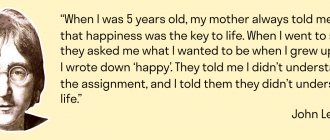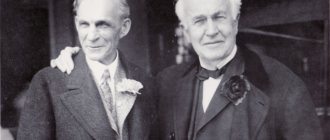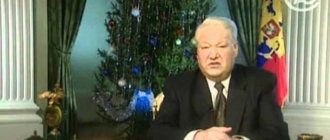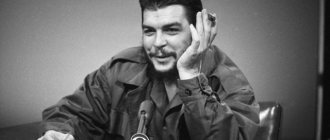Briefly about the activities of F. Castro
Fulgencio Batista seized power in a coup d'état on March 10, 1952, overthrowing Cuban Authentico Party President Carlos Prio and then setting new records of political corruption and incompetence on the island.
Fidel Castro's first attempt to overthrow Batista took place on July 26, 1953, when he inspired one hundred and sixty other revolutionaries to seize the Moncada barracks in Santiago. The goal was to spark a rebellion among Cuban youth against the government. The attack failed and Castro, along with twenty-seven comrades, were eventually captured, tried and imprisoned.
In October 1954, Fidel's influential magazine History Will Acquit Me was secretly published and distributed throughout Cuba. A year later, Castro and other revolutionaries were released under an amnesty. Fidel, Raul and several others went into exile in Mexico on July 7, 1955, where they were joined by future guerrilla leader Ernesto Che Guevara.
Castro's revolutionary organization sailed from Mexico to Cuba on December 2, 1956. After a long guerrilla campaign, Batista was overthrown on January 1, 1959. Castro established a communist regime. His detractors say he turned Cuba into a politically repressive one-party communist state, but supporters argue it was truly a people's democracy at the grassroots level. A more accurate assessment would probably be that he turned a politically and financially repressive dictatorship into just a politically repressive dictatorship.
At the time Fidel took over Cuba, the country was essentially run by American corporations in alliance with the government. Castro did the unthinkable: he took it all (plantations, casinos, etc.) because the citizens of Cuba were not happy with it. Castro not only tricked the US government into helping him overthrow the regime, but then nationalized all of their assets.
The CIA repeatedly tried to assassinate Fidel, and in 1962 the United States imposed an economic embargo on Cuba. Castro was later excommunicated by Pope John XXIII, but he didn't care. With the full support of the Soviet Union, Fidel began profound reforms on the island, leading to the Cuban Missile Crisis.
Education, sports and especially healthcare were very developed. However, after the collapse of the Soviet Union in 1991, Cuba's economy plummeted, leading to huge disruptions in electricity, gas and water supplies.
short biography
Fidel Castro is primarily known as the leader of the Cuban Republic and the people's ruler. He became the head of state in 1959, when he and a group of associates managed to overthrow the dictatorial regime of General Batista.
In the early 60s. Cuba, under the leadership of Castro, began to build socialism, and Fidel remained the unchangeable ruler of the republic. He led the country for more than 57 years, until his death in 2016.
Due to the sharp rapprochement between Cuba and the USSR during the Cold War, the island republic's relations with the United States government deteriorated greatly and remain quite tense to this day.
During the more than half-century rule of Fidel Castro, attempts were made on his life several times, rumors were circulated about his death, and the commandant was repeatedly censured. In addition, he was excommunicated by the Catholic Church for almost 50 years. However, all the negativity that was directed at him did not break the spirit of the head of Cuba. In response to all the negative assessments, he said this: “You can judge me. It doesn’t matter—history will vindicate me.”
The most famous quotes by F. Castro
The most popular sayings of the commandant include:
- “In a well-planned economy there is no communism or Marxism, but there is democracy and social justice.”
- “I became a communist by studying capitalist economics, and when I had some understanding of the problem, it seemed so absurd, so irrational, so inhuman, that I simply began to develop my own formulas for production and distribution.”
- “I think capitalism is disgusting. It is dirty, it is rude, it is alienating, it is the cause of war, hypocrisy and competition."
- “Someday the capitalist system will disappear in the United States because no social class system has lasted forever. One day class societies will disappear."
Famous speeches and sayings of Fidel Castro
The Cuban revolutionary's most famous speech is "History will vindicate me." In October '53, Castro defended himself with this speech in the courts after he led the attack on the Moncada barracks. Later, the speech was reconstructed as a manifesto for the organization "Movimiento 26 de Julio" and the overthrow of the Batista dictatorship.
Fidel Castro - Quotes
It doesn't matter how many of you there are. It is important to have faith and it is important to have a clear plan. Victory is perseverance.
Fidel Alejandro Castro Ruz (Spanish Fidel Alejandro Castro Ruz, August 13, 1926, Biran, Oriente, Cuba - November 25, 2021, Havana, Cuba) - Cuban revolutionary and political figure, comandante, leader of Cuba from 1959 to 2008.
| Let your homeland look at you with pride. Don't be afraid of a glorious death. To die for one's homeland means to live. |
| …que la patria os contempla orgullosa; no temáis una muerte gloriosa, que morir por la patria es vivir! |
What we did should have taught us that nothing is impossible. After all, what seemed impossible yesterday has become possible today. And therefore nothing will seem impossible to us tomorrow!
| Revolution is not a road of roses. Revolution is a struggle to the death between the future and the past. |
| …que una revolución no es un camino de rosas, y que una revolución es una lucha a muerte entre el futuro y el pasado:250. |
| Revolution is the meaning of a historical moment; this means changing everything that needs to be changed; this means complete equality and complete freedom; this means that you are treated and you treat others humanely; this means - to free yourself, with your own strength; it means challenging powerful dominant forces within and outside the social and national environment; this means standing up for what you believe in, at the cost of any sacrifice; this means modesty, selflessness, selflessness, solidarity and heroism; it means to fight bravely, intelligently and realistically; this means never lie or violate ethical principles; it is a deep conviction that there are no forces in the world capable of crushing the power of truth and ideas. The revolution is unity, it is independence, it is the fight for our dream of justice in Cuba and in the world, on which our patriotism, our socialism and our internationalism are based. |
| Revolución es sentido del momento histórico; es cambiar todo lo que debe ser cambiado; es igualdad y libertad plenas; es ser tratado y tratar a los demás como seres humanos; es emanciparnos por nosotros mismos y con nuestros propios esfuerzos; es desafiar poderosas fuerzas dominantes dentro y fuera del ámbito social y nacional; es defender valores en los que se cree al precio de cualquier sacrificio; es modestia, desinterés, altruismo, solidaridad y heroísmo; es luchar con audacia, inteligencia y realismo; es no mentir jamás ni violar principios éticos; es convicción profunda de que no existe fuerza en el mundo capaz de aplastar la fuerza de la verdad y las ideas. Revolución es unidad, es independencia, es luchar por nuestros sueños de justicia para Cuba y para el mundo, que es la base de nuestro patriotismo, nuestro socialismo y nuestro internacionalismo:267. |
| Sentence me! It does not matter! History will justify me! |
| Condenadme, no importa. La historia me absolverá. |
I started the revolution with 82 people behind me. If I had to do it again, fifteen or even ten would be enough. Ten people and absolute faith. It doesn't matter how many of you there are. It is important to have faith and it is important to have a clear plan. Victory is perseverance. I am a Marxist-Leninist, and I will be one until the end of my days. Capitalism has no moral or ethical values: everything is for sale. It is impossible to properly educate the people under such conditions: people turn into egoists, and sometimes even into bandits. If surviving an assassination attempt were an Olympic sport, I would be a champion.
| From the very beginning, Lenin was not only a political theorist, a philosopher of politics, but also a man of action, a man of constant and unceasing revolutionary practice. |
| Lenin fue desde el primer instante no solo un teórico de la política, un filósofo de la política, sino un hombre de acción, un hombre de práctica revolucionaria constante e incesante. |
The struggle of interests and huge profits of weapons manufacturers led them to create even more cruel and destructive types of weapons. The reality of the world seems to have been designed to promote selfishness, individualism and the dehumanization of man. The best president for the United States could be a robot. None of the modern world problems can be solved by force, there is no global power, technological power, military power that could guarantee complete security... Life without ideas is worth nothing. There is no greater happiness than fighting for them. A woman in a man’s heart is a source of sacred and inviolable reverence. Anyone who has a computer has all the published knowledge. I am a communist, but I have not become an atheist. The Yankees' assertions that a European nuclear shield is necessary, among other things, to protect Russia from Iran and North Korea are laughable. Our country is a paradise in the spiritual sense of the word. And as I have said many times, we would rather die in heaven than survive in hell. Capitalism is disgusting. It brings only war, hypocrisy and rivalry. The world has now entered a very special period, and it remains to be seen how it will emerge from it. The capitalist also believes that he is working; however, his “work” consists of appropriating the results of other people’s work. Castro, Raul
- Discurso pronunciado por El Comandante Fidel Castro Ruz, Primer Ministro del Gobierno Revolucionario ante el pueblo congregado en el Palacio Presidencial para reafirmar su apoyo al gobierno revolucionario y como protesta contra la cobarde agresión perpetrada contra el pacifico pueblo de la Habana por aviones procedentes de territorio extranjero , el 26 de octubre de 1959. In this speech, Fidel Castro also emphasizes that he is quoting the words of the Cuban anthem
- Discurso pronunciado por el Comandante Fidel Castro Ruz, Primer Ministro del Gobierno Revolucionario, en el desfile efectuado en la plaza cívica, el 2 de enero de 1961 on the website of the Cuban government.
- 3.03.1 Salomón Susi Sarfati Diccionario de pensamientos de Fidel Castro. - La Habana: Editora Política, 2008. - ISBN 978-959-01-0757-3
- Discurso pronunciado por el Comandante en Jefe Fidel Castro Ruz en la Tribuna Abierta de la juventud, los estudiantes y los trabajadores por el día Internacional de los Trabajadores, en la Plaza de la Revolución, el primero de mayo del 2000
- Fidel Castro History will vindicate me. Speech at the trial of the participants in the attack on the Moncada barracks in the city of Santiago de Cuba. October 16, 1953 // Selected works, 1952-1986. - M.: Publishing House of Political Literature, 1986. - P. 60.
- Fidel Castro Ruz La historia me absolverá y otros discursos. - Caracas: Ministerio del Poder Popular para la Comunicación y la Información, 2009. - P. 113. - (Colección Palabras Esenciales). — ISBN 978-980-227-069-9
- Fidel Castro Selected Works, 1952-1986 - M.: Publishing House of Political Literature, 1986. - P. 204.
- Discurso pronunciado en la velada solemne en conmemoración del centenario del natalicio de Vladimir Ilich Lenin, efectuada en el Teatro “Chaplin”, el 22 de abril de 1970 on the Cuban government website









